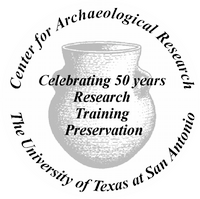|
"The Center for Archaeological Research at the University of Texas at San Antonio was created during the summer of 1974. Three major objectives guide the activities of the Center:
From the Preface to Archaeological Survey Report, No. 1, Assessment of Archaeological Resources in Certain Areas of the Allens Creek Watershed, Austin County, Texas (Bass 1974:1), the first publication of the CAR. Thomas Hester served as Director from 1974-1986. |
|
| CAR hit the ground running in the summer of 1974 and 1975 supporting the field school at the Chaparrosa Ranch in Zavala County, Texas. The 1974 field school was the first archaeological field school offered to UTSA students. Background and insight into this site can be found in Special Report No. 6, Volume 1 and Volume 2. The photo shows E.S. Harris from the 1974 field school. | 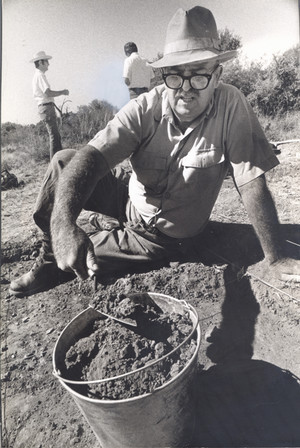 |
| CAR supported field schools at LBJ State Park and Baker Cave in the summer of 1976 (photo at the right shows A. Farraro and E. Hake at the LBJ State Park Excavation). In 1977, CAR supported the field school at the St. Mary's Hall site in Bexar County. Preliminary findings from the Baker Cave and the St. Mary’s Hall site were published in a non-serial publication, Early Human Occupations in South Central and Southwestern Texas: Preliminary Papers on the Baker Cave and St. Mary’s Hall Site by Thomas Hester. | 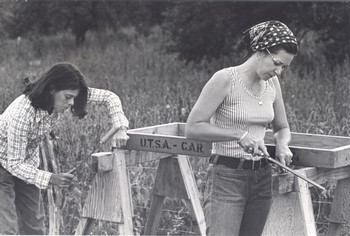 |
|
CAR participated in numerous projects concerning downtown San Antonio, including:
|
|
|
The Baker Cave site in Val Verde County, Texas is a significant multi-component archaeological site in the Lower Pecos region. CAR participated in excavations in the 1970s and curates many artifacts associated with the site. A rehabilitation of the Baker Cave collection began at CAR in 2021. |
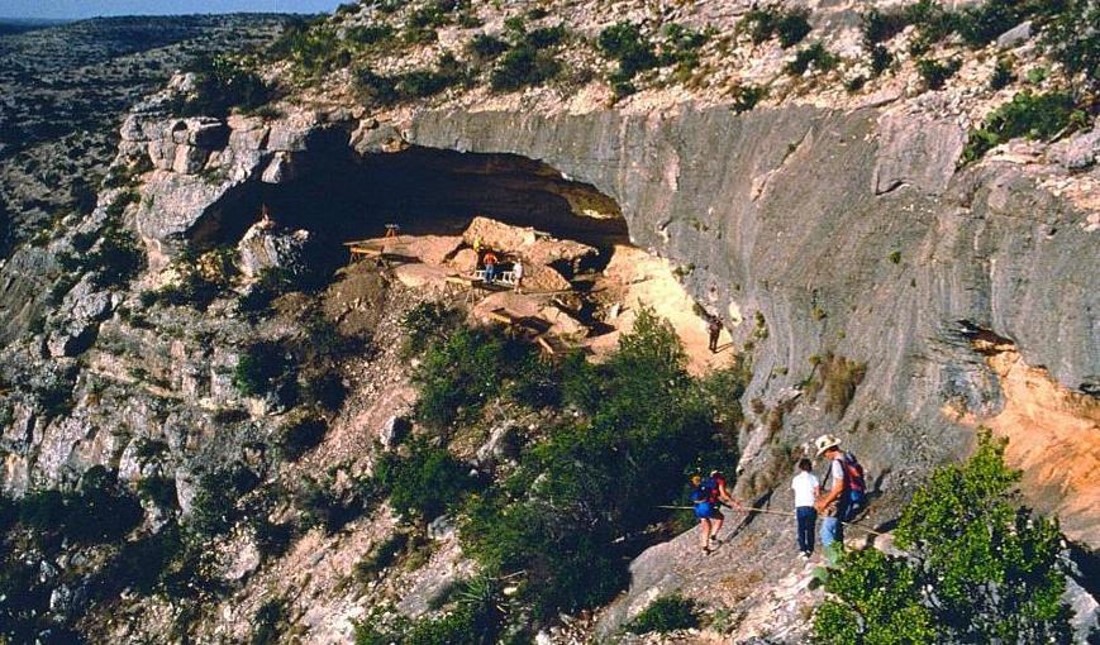 |
| CAR was awarded a multiyear contract by the U.S. Bureau of Reclamation in the late 1970s to conduct archaeological investigation at the site of the proposed Choke Canyon Reservoir. This was the largest archaeological project ever done in southern Texas, and worked with other Texas Universities for the duration of the project. Formed by the damming of the Frio River in 1982 in Live Oak and McMullen counties, archaeological sites that would be impacted by the filling of the reservoir were investigated. Over 300 archaeological sites were discovered. CAR published 12 volumes of research on these investigations in the early 1980s. | |
|
The Radio Shack Site at Alamo Plaza was excavated by CAR staff in 1979. Jake Ivey can be seen at the site in the photo to the right. |
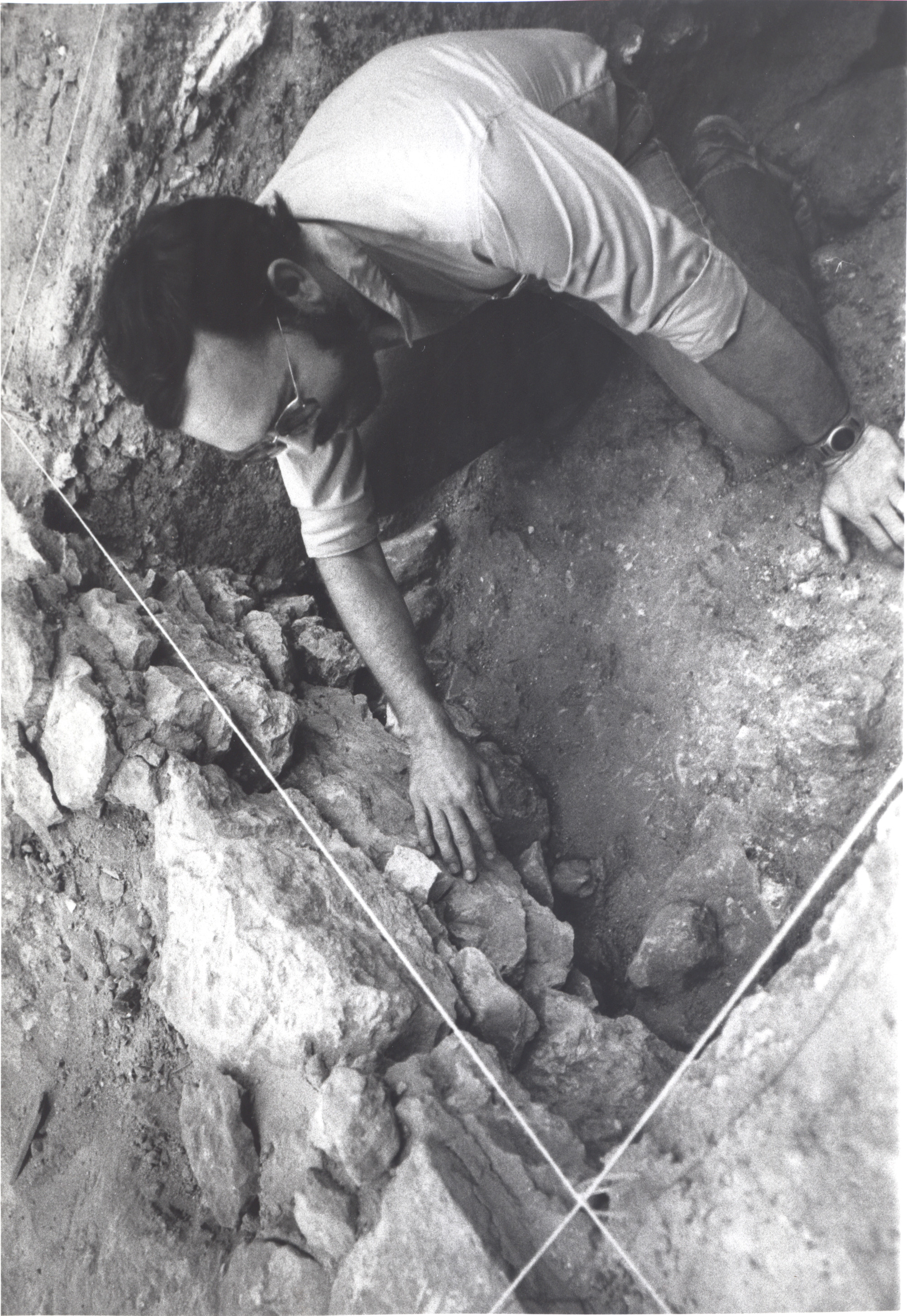 |
|
By the end of the 1970s, CAR was involved with or published on projects in 33 Texas counties, New Mexico, Mexico, and Belize. |
|
 |
|

